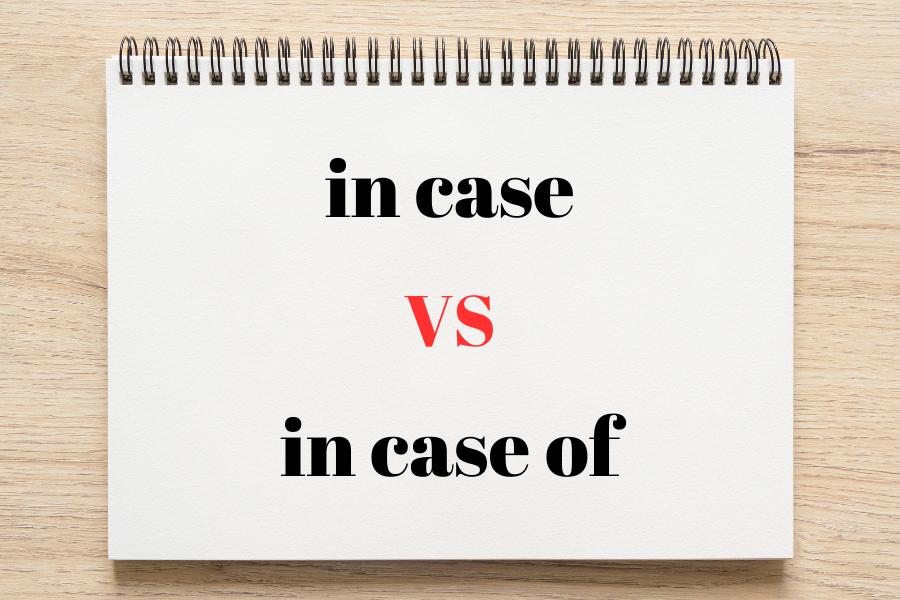In case & in case of: Introduction
In this article, you will learn the difference between “in case” and “in case of” in English grammar, and how to use them correctly in your daily English conversations.
In case and in case of: Example
Before giving you the whole definition, I want to see this little understanding of when to use “in case of” is crucial for expressing preparations or precautions for potential situations. For example, “In case of emergency, call 911.”
On the other hand, We use “in case” to talk about things we should do in order to be prepared for possible future situations. For example, “In case I forget the meeting, send me a message”.
In case and in case of: Definition
If you observe the two examples, you may realize some small details about those words.
In case of: Definition
The sentence “In case of emergency, call 911.” is commonly used to provide instructions in case of a critical situation. Here is how the sentence is structured:
- “In case of emergency”: This phrase introduces a scenario or condition (an emergency situation).
- “Call 911”: This is the action to be taken if the specified condition (emergency) occurs.
Overall, this sentence effectively communicates that if there is an emergency, the appropriate action is to call 911 for assistance. This usage is straightforward and widely understood as a directive for emergency situations.
As a result, “in case” is either an adverb or a conjunction.
In case: Definition
The sentence “In case I forget the meeting, send me a message.” conveys the intended meaning. It suggests that if the speaker forgets about the meeting, they may like to receive a reminder message.
So, this sentence uses “in case” to introduce a condition (forgetting the meeting) and implies a potential action (sending a message). Here’s a breakdown of the sentence:
- “In case“: Indicates a condition or situation that might happen.
- “I forget the meeting”: The condition being discussed.
- “Send me a message”: The action to be taken if the condition occurs.
All in all, the sentence effectively communicates a request for a reminder under certain circumstances.
Therefore, In case of is a preposition. And we use “in case of” + noun to mean ‘if and when something happens’.
Generating More Examples
Typically, we can use “in case” in 3 different ways:
- Shall I keep some pizza for your brother in case he is hungry when he heads home? (conjunction)
- In case you want to drive the car later, here are the keys to the garage. (conjunction)
- My sister knows she has passed the math exam, but she doesn’t want to say anything just in case. (adverb)
In general, we can use “in case of” like those examples below:
- The camping area has ready access to water, in case of fire.
- A doctor is on call in case of emergencies.
- In case of emergency, please contact the child’s parents.
In case vs in case of: Summarizing
Summary:
- In Case: Used to prepare for a potential situation or condition.
- In Case of: Used to specify actions or procedures for specific conditions or events.
Note: if you have any doubts about using or understanding those words, leave us a comment below.

Leave a Reply